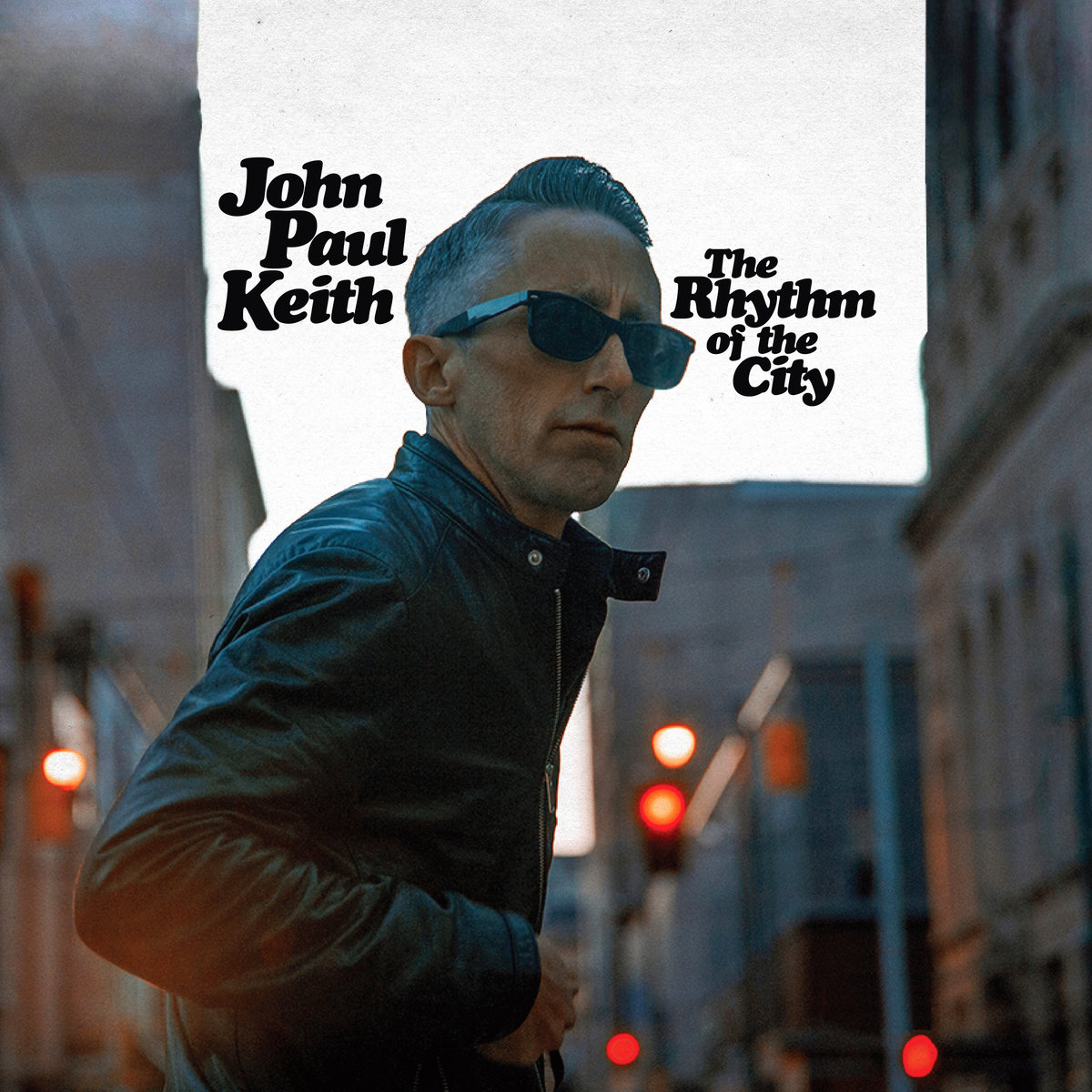
JOHN PAUL KEITH: THE RHYTHM OF THE CITY

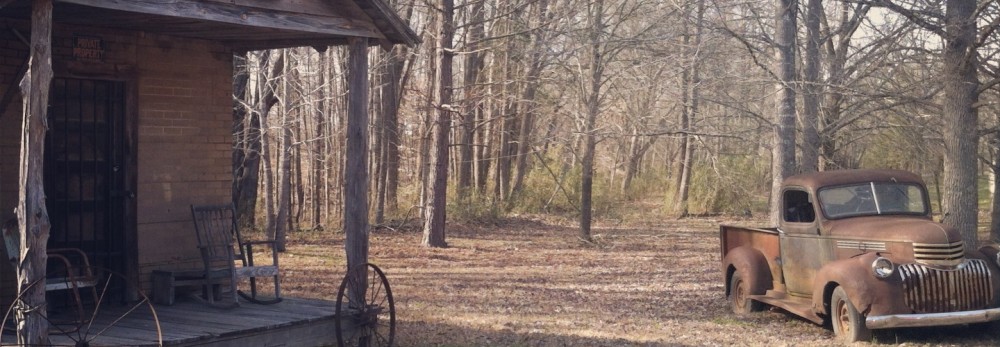

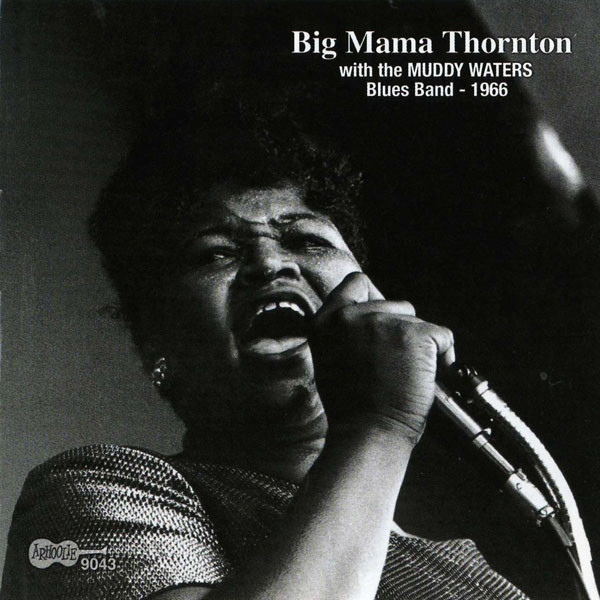
RECOMMENDED ALBUMS: BIG MAMA THORNTON IN EURPOE (Arhoolie), BIG MAMA THORNTON AND THE MUDDY WATERS BLUES BAND (Arhoolie), THE ORIGINAL HOUND DOG (Ace Records)
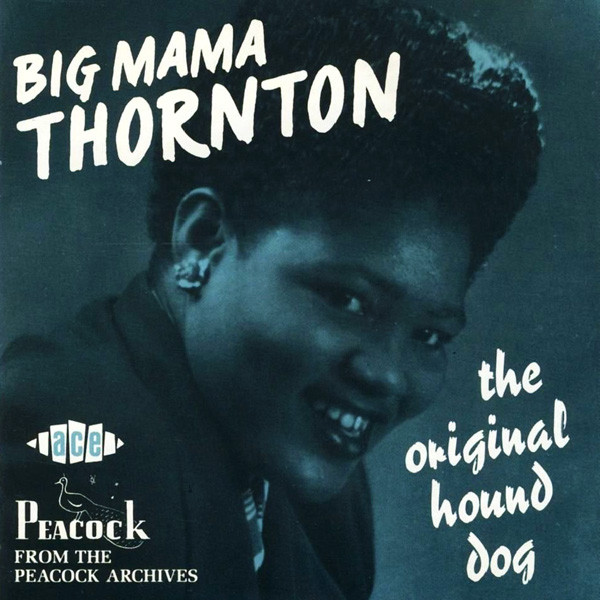
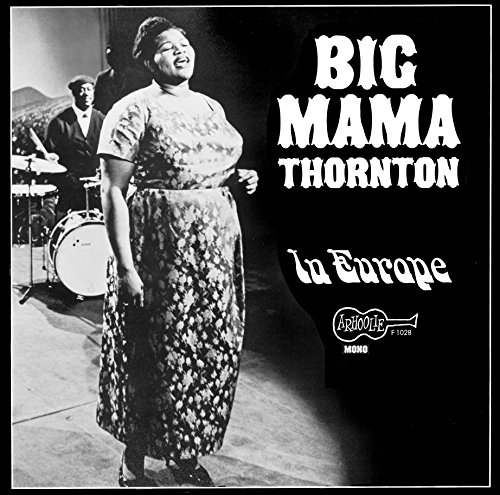
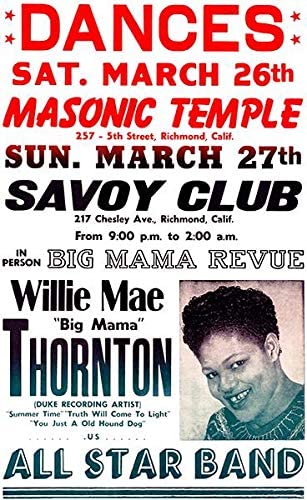
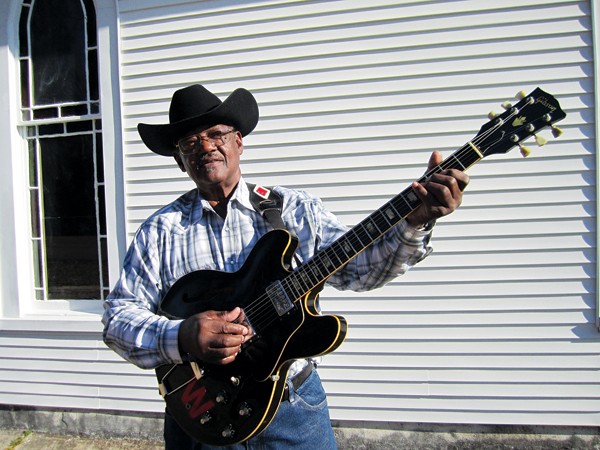
On the morning of October 6, 2020, The Reverend John Wilkins passed
away at the age of 76. A talented guitarist and performer, Wilkins
was enjoying some late in life success thanks to his recently released
albums YOU CAN’T HURRY GOD and TROUBLE. He was a popular performer at
Blues festivals and because of his unique Country/Blues guitar playing
style, many considered Wilkins to be one of the last living links to a
musical period long gone. He is survived by a loving family (some of
whom performed with him at his concerts) and will always be
remembered by members of the church where he was a pastor in Como,
Mississippi.
Born in Memphis in 1943 into a musical family Wilkins began playing
guitar at a young age thanks to his father, pre-war Blues guitarist
Robert Wilkins. Best known for his song “Prodigal Son” (which was
covered by The Rolling Stones in 1968), Robert Wilkins had a career
that started in the late 1920’s but didn’t enjoy mass success until
his “rediscovery” in 1964 as part of the Blues revival. From about
1936 until his rediscovery in ’64 Robert temporarily gave up playing
Blues and began focusing on Gospel music. It was during these years
that young John came into this world and began performing alongside
his father at church. While his father was probably his biggest
influence on his playing directly, John also soaked up the musical
sounds of Memphis during the 50’s and 60’s. He would go on to do
studio sessions and play in various groups around the city before
eventually settling down and becoming a pastor of the Hunter Chapel in
Como, Mississippi in 1985.
Even though Hunter Chapel had its fair share of blues musicians as
part of their congregation over the years once Wilkins took over as
pastor he gave up playing guitar entirely. He finally picked it up
again in 2003 after he attended a funeral for his friend, musician
Otha Turner. Inspired to pick up playing music again he got back into
performing and in 2010 he released his debut album YOU CAN’T HURRY GOD
(Big Legal Mess Records). The record was well received by many and
soon Wilkins found himself bringing the sound of the Mississippi Hill
Country (or as Wilkins called it “Hand-clappin’ foot-stompin” music)
to places like London and Paris. He became a major fixture at Blues
festivals all over the world and in 2019 recorded a follow up album.
All seemed to be going well for Wilkins and his family until April
2019 when he contracted COVID. Like many who have contracted the
disease Wilkins first found himself having trouble breathing and
feeling like he had the flu. He phoned his daughter and was quickly
admitted to a local hospital where he was hooked up on a respirator.
He stayed in the ICU for 5 weeks before his health slowly started to
improve. Then in mid June, Wilkins got the good news he was all clear
and returned home! Not long after his release from the Hospital he
released the album TROUBLE (Goner Records) that he recorded in 2019.
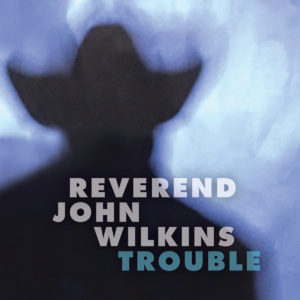
Recorded in Memphis at the legendary Royal Studios, TROUBLE was
finally released September 18th, 2020 and received rave reviews upon
its release . Formally the recording home of Willie Mitchell’s
Hi-Records (Al Green, Syl Johnson, Ann Peebles) Royal Studios has been
one of the prominent spots to record in the south since 1957. The
recording session was sort of a homecoming for Wilkins as he performed
on sessions here in his earlier years. The studio is also known for
taking Soul music to the next level in the 60’s and 70. So, it seems
only fitting that the album Wilkins recorded here would be musically
diverse. Featuring a little something for everyone, TROUBLE is truly a
Memphis record. Here we find Wilkins and his band mixing Country and
Soul along with their normal mix of Blues and Gospel thus giving the
album more of a “Southern Soul” feel then his previous record. It also
must be said that one of highlights on this record is hearing Wilkins’
own daughters perform alongside him.  Tangela Longstreet, Joyce Jones, Tawana Cunningham are all very talented in their own right and give the band sort of a Staple Singers sound on tunes like “Wade In The Water”, “Walk With Me”, and “Darkest Hour”.
If there’s any part of TROUBLE that is a bummer it’s that Wilkins
wasn’t alive long enough to see it enjoyed by his fans. As previously
mentioned he passed away October 6, 2020 from unknown causes. While he
will be missed by many all over the world we are fortunate he left us
two wonderful albums of music along with a lifetime of memories.
Hopefully his music will live on and find new listeners in the years
to come. After all, who doesn’t love some good Hand-clappin, foot-stompin’ music!
REV. JOHN WILKINS albums are currently available for streaming on Spotify and for purchase through most on-line retailers.Â
YOU CAN’T HURRY GOD (Big Legal Mess Records) 2010
TROUBLE (Goner Records) 2020
There was a time when all an artist would need to make a good recording was their instrument, a microphone, and a tape recorder. In fact, some of the greatest and most influential recordings of our time were made in rural areas in the back of small country stores or small cabins on equipment that was powered a car battery.  Known as “field recordings”, these recordings were usually done by folklorists determined on documenting maters of American Roots music in a natural setting.
Personally, some of my favorite field recordings where done by music historian George Mitchell. Born in Coral Gables, Florida and raised in Athens, Georgia, Mr. Mitchell has recorded hundreds of hours of music, mostly by musicians who would’ve never been heard outside of their living room if it weren’t for him. He was the first to record Hill-Country Blues guitarist R.L. Burnside in 1967 in Mississippi, a recording session that yielded some the most heart-felt acoustic Blues ever recorded. He also was responsible for some excellent late-in-career recordings of Blues legends Fred McDowell and Furry Lewis.
In 2008 Fat Possum records complied a large number of George Mitchell’s recordings for a massive 7-disc box-set simply titled “The George Mitchell Recordings Vol. 1-45”. Â While the amount of music in this collection may have been perfect for the Blues connoisseur wanting to get completely stuffed on Mitchell’s field recordings, the collection lacked a certain intimacy you get when you focus on just one single artist’s session. Â Thankfully, the good people at Fat Possum/Big Legal Mess Records realize this and over the years have released entire sessions from individual artists recorded by George Mitchell. Below are some of my very favorites…Â No studio tricks, no auto-tune, just a musician and their music.
R.L. Burnside First Recordings Recorded in 1967
A popular style of Blues played by musicians from Northern Mississippi, “Hill Country Blues” focuses more on creating a hypnotic rhythm and less on following a specific chord progression. While musicians such as Otha Turner, Jesse Mae Hemphill and Mississippi Fred McDowell (actually from Tennessee) are masters of this style, the two best known Hill Country Blues musicians are Junior Kimbrough and R.L. Burnside. Â Both Kimbrough and Burnside made their first recordings in the 1960’s with the latter recording for George Mitchell in 1967.
George Mitchell first caught wind of R.L. Burnside while recording another Hill Country Blues master, Otha Turner.  It was Turner who suggested to Mitchell that if he wanted to hear someone who could REALLY PLAY, he should check out his neighbor R.L. Burnside.  Although both Turner and Burnside where unknown to the outside world at the time they were very popular in their respective communities and masters of the their instrument.
During his session for Mitchell, Burnside performed excellent versions of Hill Country standards, “Poor Black Mattie”, Â “Goin’ Down South” and “Rollin’ and Tumblin”. He also played a slow eerie-blues entitled “Just Like A Bird Without A Feather”, which is the best track on this wonderful album.
JOE CALLICOT Ain’t Gonna Lie To You Recorded in 1967
Recorded in 1967 and reminiscent of recordings by fellow guitarist Mississippi John Hurt,  AIN’T GONNA LIE TO YOU is a mix of Blues standards and Gospel numbers.  Also like Hurt, Joe’s voice isn’t the strongest in the world but yet it wonderfully complements his soft finger-picking guitar style. A perfect example of this is Joe’s beautiful rendition of the Folk standard “Frankie and Albert”.  While Joe’s career actually began in the 1920’s and included recording sessions and performances outside of Mississippi he was never a household name and even gave up music in the 1940’s. Fortunately for us he returned to recording after meeting George Mitchell in 1967.
J.W. WARREN Life Ain’t Worth Livin’ Recorded in 1981 & 1982
 J.W. Warren was born in 1921 in Enterprise, Alabama.  Like many of the musicians recorded by George Mitchell, Warren was a farmer who mostly performed just for friends at parties and in local juke joints. The recordings on LIFE AIN’T WORTH LIVIN’ were done in Warren’s own home in Alabama by Mitchell on September 15th, 1981 and in March 27th, 1982.  Musically, Warren stuck mostly to traditional-sounding Country Blues. His powerful voice is best displayed on the tune “Hoboing Into Hollywood” and at times bares resemblance to the voice of Country Blues legend Bukka White.  Also like White, J.W. Warren was a slide guitar player who’s raw playing style helped him obtain local notoriety. He would scrap his jack-knife against the strings of his guitar to create the sound of a slide (documented here on the recording “My Mind Gets To Wandering”). Mostly a homebody, Warren never toured and rarely travelled out of his hometown. He lived out his final years at home in Ariton, AL, passing away on August 15th, 2003. Fortunately for us we can remember him through these excellent recordings.
Similar Artists: Junior Kimbrough, R.L. Burnside, Lightnin’ Hopkins
The Beginning: Fat Possum Records and Hill Country Blues
In 1992 a small indie label called Fat Possum Records gave the American Blues scene a much needed kick-in-the-ass when they released the debut album from 62 year-old Bluesman Junior Kimbrough. Entitled ALL NIGHT LONG, the record was met with rave reviews from both critics and Blues fans and gave Kimbrough some well deserved national attention. Shortly after the success of the Kimbrough record Fat Possum also started having success with another one of their artists, R.L. Burnside. Like Junior Kimbrough, R.L. Burnside was in his 60’s a resident of the Mississippi Hill Country and a master of a style of music called “Hill Country Blues”. Different than the well known Delta Blues style, Hill Country Blues focuses more on creating a groove and sometimes features other instruments such as Drums. With both the Kimbrough and Burnside records receiving some good press, Fat Possum began recording other Hill Country Blues musicians. Unfortunately the label quickly ran into the problem that many of the musicians they recorded were usually older and in very poor health. Sadly, many of them died before or shortly after their album got released. Down but not out Fat Possum Records kept plugging along and in 2000 they released a record by a 59 year-old construction worker named Robert Belfour.
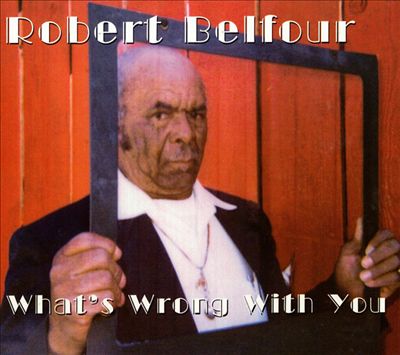 Fat Possum and Mr. Robert Belfour
Fat Possum and Mr. Robert Belfour
Robert Belfour was born in 1940 in Red Banks, Mississippi. Growing up in the Hill Country, he was surrounded by music and learned to play the guitar by watching his father play. As his interest in the guitar grew he began performing for friends and family at picnics. He continued his musical education by watching local legends like Othar Turner and Junior Kimbrough who both lived in the area and regularly performed at parties and in local Juke-Joints. Unfortunately when Robert was just 13 years old his father passed away and he was forced to get a job in order support the family. Then in 1959 Robert got married and moved to Memphis, Tennessee. He worked in construction for the next 35 years and only played music when he had time. In fact, it was until the late 80’s when he really began to take music seriously again. His first real break came in 1994 he was featured on the compilation album THE SPIRIT LIVES ON, DEEP SOUTH COUNTRY BLUES & SPIRITUALS. The recordings he contributed to the record got the attention of Fat Possum Records and in the year 2000 the label issued his debut album WHAT’S WRONG WITH YOU. A dark-acoustic record, WHAT’S WRONG WITH YOU showcased Roberts percussive guitar work and rich deep voice. The album featured a mixture of originals and covers, many of which had been made popular by other Hill Country Blues musicians. The album was a success with many Blues enthusiasts and introduced Robert to an international audience.
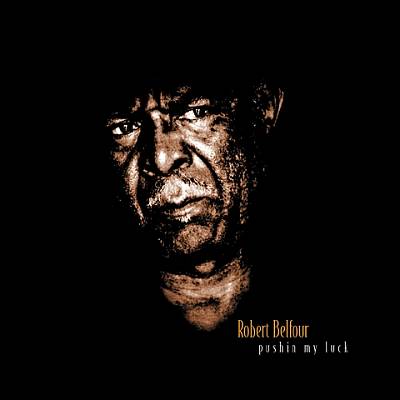 In 2003 Robert released his second album on Fat Possum, the humorously titled, PUSHIN’ MY LUCK. Like it’s predecessor, the album was primarily acoustic and pleased both fans and critics. Internationally, Robert’s popularity grew and he started to play a number of European Blues festivals. Back in the states, Robert kept his home in Memphis and continued to be a regular performer on the Juke-Joint scene in Clarksdale, Mississippi. A dynamic performer into his 70’s, Robert’s shows would usually last late into the the night and sometimes be as long as three hours! Unfortunately, all good things must come to an end. Robert Balfour passed away at his home in Memphis on February 25, 2015. Fortunately for us (and thanks to the good folks at Fat Possum Records) his recordings are still readily available and can be found on iMusic, Spotify, Amazon, and at your local record store.
In 2003 Robert released his second album on Fat Possum, the humorously titled, PUSHIN’ MY LUCK. Like it’s predecessor, the album was primarily acoustic and pleased both fans and critics. Internationally, Robert’s popularity grew and he started to play a number of European Blues festivals. Back in the states, Robert kept his home in Memphis and continued to be a regular performer on the Juke-Joint scene in Clarksdale, Mississippi. A dynamic performer into his 70’s, Robert’s shows would usually last late into the the night and sometimes be as long as three hours! Unfortunately, all good things must come to an end. Robert Balfour passed away at his home in Memphis on February 25, 2015. Fortunately for us (and thanks to the good folks at Fat Possum Records) his recordings are still readily available and can be found on iMusic, Spotify, Amazon, and at your local record store.
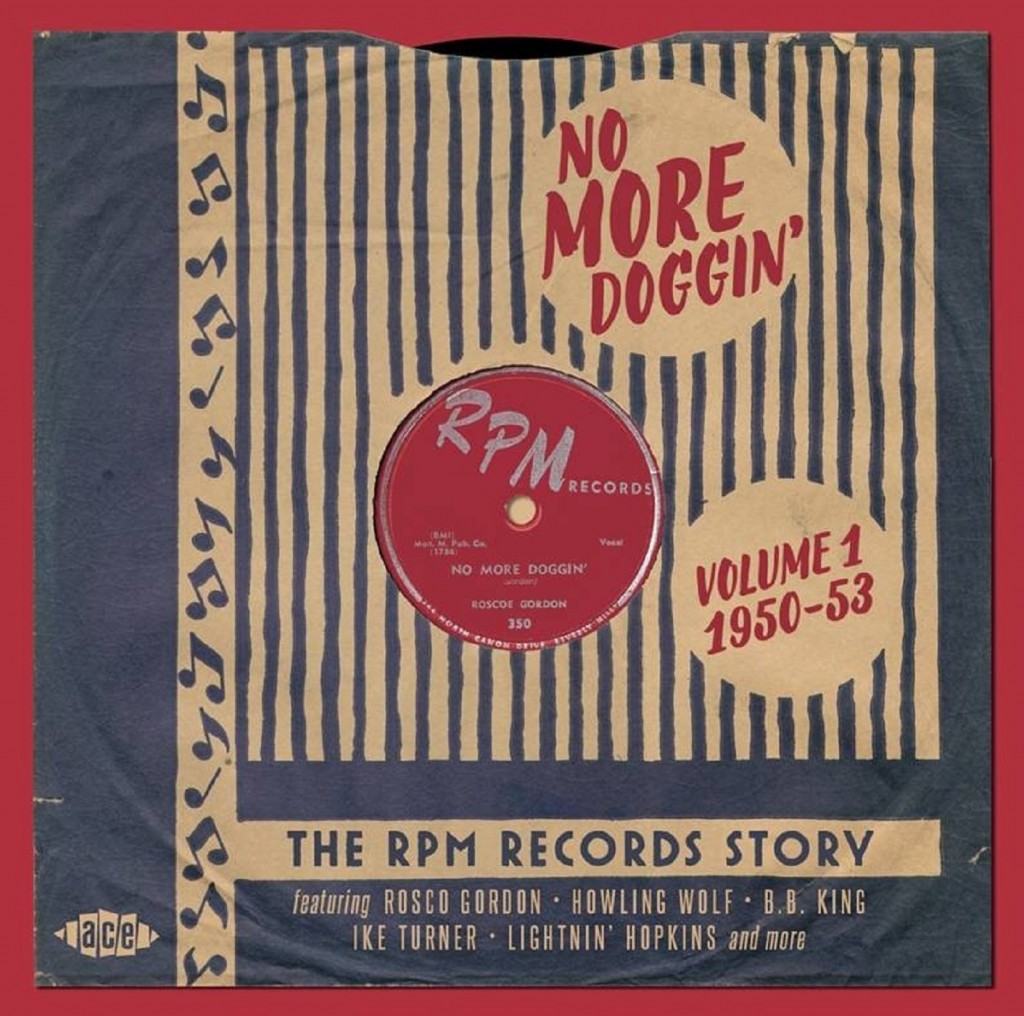 Full of Jump Blues, early R&B, and down-home Country Blues, the double-disc collection No More Doggin’ The RPM Records Story Vol. 1 might be one of the best introductions to early 50’s blues ever. Compiled by the good folks at ACE Records, this collection covers the early years of RPM Records and features well know artists like B.B. King, Howlin’ Wolf, and Lightnin’ Hopkins.
Full of Jump Blues, early R&B, and down-home Country Blues, the double-disc collection No More Doggin’ The RPM Records Story Vol. 1 might be one of the best introductions to early 50’s blues ever. Compiled by the good folks at ACE Records, this collection covers the early years of RPM Records and features well know artists like B.B. King, Howlin’ Wolf, and Lightnin’ Hopkins.
Started in 1950 by the Bihari Brothers, RPM was meant to be a subsidiary of the Bihari’s very popular label Modern Records. After initially having lots of success with Modern, the Bihari’s began having trouble getting their records played on the radio due to stations not wanting to play too many sides from any one label. So in order to get their product on the airwaves the Bihari’s started a number of subsidiary labels. Probably the most popular of Modern’s subsidiary labels, RPM introduced the world to a Memphis radio DJ by the name of Riley B. King. Eventually known as “B.B. King”, Riley came to the attention of the Bihari Brothers thanks to their working relationship with Memphis talent scout/producer Sam Phillips. Phillips at the time was recording local artists with his Memphis Recording Service then sending the masters to labels like Modern and Chess. Trough their relationship with Phillips, the Bihari’s got hooked up with some of the best talent in Memphis. Unfortunately their relationship ended when Phillips and the Bihari’s had a disagreement over a B.B. King session and went their separate ways. Fed up with feeding product he recorded to other labels, Phillips then decided to start his own label, Sun Records. As for Modern/RPM, even without the help of Phillips the label still went on to produce many more hits, including B.B. King’s breakthrough hit record Three O’Clock Blues.
No More Doggin’ The RPM Records Story Vol. 1 starts off with the Dixieland-style track “Alabama Bound”. Sung by Adele Francis, this tune was RPM’s first release in 1950. Other stand out tracks are Sonny Blair’s down-and-out blues ballad “Glad To Be Back Home”, B.B. King’s “Other Night Blues, and Howlin’ Wolf’s “Riding In The Moonlight”. My personal favorite recordings on this collection are the Lightnin’ Hopkins tracks. Excellent versions of “Bad Luck and Trouble” and “Another Fool In Town” showcase Hopkins at his bluesy best, while “Jake Head Boogie” shows that he also could ROCK when he wanted to. Another nice surprise on this collection is the tune “It’s Time For Lovin’ To Be Done”. Performed by Detroit Bluesman Little Eddie Kirkland, the song features uncredited backing vocals by the great John Lee Hooker!
As usual the folks at ACE left no stone unturned when putting this collection together. Included in this collection is a nice history of RMP records as well as a few words on all the performers. All of the albums 52 tracks sound crisp and clear thanks to the extra care shown by the folks who did the remastering. If you want to hear where Rock N’ Roll really began this collection is for you.
James Govan might be the best singer you’ve never heard of. A staple of the local music scene for many years, James Govan was born in McComb, Mississippi in 1949.  His first big break came in 1967 when his talent caught the attention of songwriter/producer George Jackson. Jackson, who at the time was a songwriter for the legendary Muscle Shoals record label FAME, immediately recognized there was something special in James’ voice and decided to introduced him to FAME Records owner Rick Hall.  Hall also heard potential and soon after their meeting James starting recording sides for FAME. While the material was strong and James would go on to recorded a number of songs for FAME between 1969 and 1972  the label only released a few of them as singles. In fact, most of the music went unreleased until 2013 when the good people at ACE Records complied and released James Govan Wanted: The FAME Recordings. Even though none of these recordings were big hits it’s still an amazing body of work that’s essential to any Soul music fan’s record collection.
After his time with FAME, James went back to Beale Street where he became a regular performer in blues clubs. He released one album in 1982 which went nowhere and after that didn’t release any new music until the 1990’s. He saw some success again in 1993 when his performance at the Porretta Soul Festival in Italy made him a popular performer in Europe. He then released another album in 1996 but like his previous albums, it failed to draw any attention. James may have never had that “big hit record” but he always delivered the good live. He was a regular performer at the famous Run-Boogie Cafe in Memphis for over 20 years.
Sadly James passed on July 18, 2014. Fortunately his amazing talent will live on through his recordings and hopefully in time make James Govan into a household name. You can purchase James Govan Wanted: The FAME Recordings here
Mavis Staples is a living legend. Over the past 60 years she’s not only brought Gospel music to the masses but she’s also been a voice of hope and strength for those fighting for Civil Rights. Her career started in Chicago during the late 1940’s when she and her siblings would perform in churches alongside their father, the legendary Roebuck “Pops†Staples. With a sound that was rooted in Southern Gospel and Delta Blues “The Staple Singers†soon became local favorites and in the early 50′s began recording sides for labels like VeeJay, Riverside, and Checker. In addition to gospel music fans the band was also embraced by the folk music scene during the folk revival of late 50′s and early 60′s. It was during this time that the band became very active in the civil rights movement and regularly performed at rallies and events hosted by Dr. Martin Luther King.
In the late 60′s and early 70′s the music scene was changing and the band changed right along with it. They signed with the legendary STAX Records and under the guidance of STAX A&R man Al Bell they started adopting more of a Soul-Gospel style. Their music might have become a little funkier but it still contained the same message of hope, love and compassion. Songs like “Respect Yourself“, and “I’ll Take You There†made the band a household name and catapulted them into stardom. Unfortunately, due to some questionable business decisions by Al Bell STAX Records filed for bankruptcy in 1975 and was forced to shutdown.
The Staples pressed on and over the next several years put out several releases for a variety of different labels. While they had success with their 1975 album LET’S DO IT AGAIN the group mostly was out of the spotlight until the 1990’s. During the 2000’s Mavis continued to perform and release solo albums. Paired with producers such as Ry Cooder and Wilco’s Jeff Tweedy, these records introduced Mavis to a whole new audience. In 2013 her Jeff Tweedy-produced album You Are Not Alone won a Grammy for “Best Americana Album”.
This year Mavis will turn 75 years young and she’s just as popular as ever. People all over the world still cram into venues to see her perform and she’s a regular musical guest on late-nite TV. Her music still carries with it a message of hope and tolerance. A message that reminds us that even though there have been victories in the struggle for civil rights, the fight is far from over.
STAPLE SINGERS/MAVIS STAPLES SUGGESTED LISTENING
The Staple Singers: Uncloudy Day (VeeJay)
The Staple Singers: Freedom Highway (Epic/Legacy)
The Staple Singers: Be Attitude: Respect Yourself (Stax)
The Staple Singers: The Staple Swingers (Stax)
The Staple Singers: The Best of The Staple Singers (Stax)
Mavis Staples: We’ll Never Turn Back (Anti) produced by Ry Cooder
Mavis Staples: You Are Not Alone (Anti) produced by Jeff Tweedy
Mavis Staples: One True Vine (Anti) produced by Jeff Tweedy
Leo “Bud” Welch: SABOUGLA VOICE Big Legal Mess/Fat Possum
For Fans of: Junior Kimbrough, R.L. Burnside, The White Stripes, Rev Louis Overstreet
Guitarist Leo “Bud” Welch was born in Sabougla, Mississippi in 1932. A natural musician, Leo taught himself to play the guitar by learning songs off the radio. As soon as he built up a small repertoire he began performing at parties and local juke-joints. Unfortunately work as a musician was inconsistent and even though he was incredibility talented he was unable to make a living playing music. In order to make ends-meet Leo ended up taking a job as a logger and had to resort to playing music only when he had free time. Then in 1975 Leo switched from playing Blues to playing Gospel. He started performing in churches all over Mississippi and even began hosting a local Gospel Television show. Even though he now considered himself a Gospel musician he still kept in touch with the local Blues scene. As time went on he heard that Blues musicians like Junior Kimbrough were having late-in-life success working with Fat Possum Records. Inspired by this he called up the label and requested an audition. Label owner Bruce Watson agreed to hear Leo play and ended up signing him on the spot. Now thanks to the good people at Fat Possum and Big Legal Mess Records the world finally gets to hear one of the treasures of Mississippi, guitarist Leo Welch.
The album is called Sabougla Voices and the music on it is honest no-frills Mississippi Gospel. Throughout the albums ten tracks Leo’s plays the guitar with the energy of someone half his age. Songs like “Praise His Name” and “You Can’t Hurry God” are upbeat and show us the lines between Blues and Gospel are blurry at best. In fact, if you were to change a few lyrics, these songs could easily be for Saturday night instead of Sunday morning. Another standout track on the record is the acoustic “Me and My Lord”. Sounding a little like Pops Staples, Leo does call and response with his backup singers while playing acoustic guitar. This song is given an extra push by Leo’s backing band which shows it’s professionalism by settling into a nice groove and not over playing.
Even though all of the music on Sabougla Voices is solid, the album’s strongest track is easily the slow and eerie blues tune “A Long Journey”. Beautifully recorded, this song is about accepting the fact that death is part of life. That being said, hopefully Leo will be still be around for a long time as he deserves to enjoy every minute of his new found success! He’s got gigs booked across the U.S. this summer and is even scheduled to perform in Europe! Not bad for someone that at one point had to turn down an audition with B.B. King because he couldn’t afford to travel to Memphis. This album is excellent and belongs in your collection.
FEVER: Little Willie John’s Fast Life, Mysterious Death, and the Birth of SoulÂ
Author: Susan Whitall Publisher: Titan Books
Armed with a lion-like voice and sparkling personality Little Willie John was one of the most popular entertainers during the 1950’s and 60’s. Songs like “All Around The World”, “Fever”, and “Talk To Me” all made it to the top of the R&B charts and became the blueprint for what would later be called “Soul Music”. He consistently filled concert halls throughout his career always delivering an electric stage show that left audiences wanting more. On the road more often then not Willie lived his life fast and hard. He regularly stayed out until the wee-hours of the morning drinking and socializing. One night after a show in Seattle, Washington while he was drinking at an after-hours club Willie was involved in an altercation that ended with him stabbing a man. Willie ended up being charged with manslaughter and was sent away to the Washington State Penitentiary where he died on May 26 1968 at the age of 30. Although the cause of his death is listed as “Heart Attack”, there are questions about the care he was given while incarcerated. However it happened, it’s a sad but true fact that Little Willie John left this world too soon.
In her book FEVER: Little Willie John, A Fast Life, Mysterious Death, and the Birth of Soul, author Susan Whitall gives us a detailed and in-dept look at the life of one of music’s greatest voices. Written with the help of Willie John’s son Kevin and filled with interviews from those who knew Willie John this book is essential for anyone interested in the history of Soul music.
Essential listening Little Willie John: Complete Hit Single’s A’s & B’s